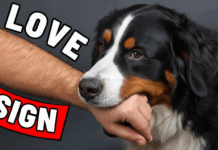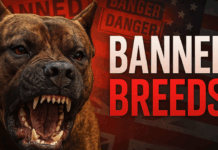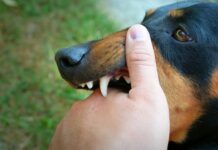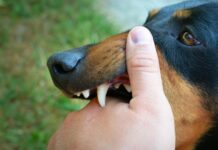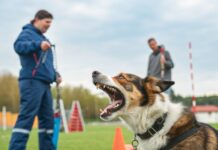Last Updated on October 8, 2024 by Dogs Vets
Public parks offer children a great place to play and explore, but they can also present risks, especially when dogs are present. Friendly dogs can act unpredictably, particularly around young children, and a bite can happen unexpectedly. If a dog bites your child in a public park, it’s important to know the steps to take to protect your child’s health and legal rights. Acting quickly after a dog bite can make a significant difference in ensuring proper medical treatment and pursuing any necessary legal actions.
Knowing the key steps to follow after a dog bites your child can help you manage the situation effectively. First, seek medical attention immediately, even if the bite seems minor, as untreated dog bites can lead to infections or more severe health complications. It’s also essential to gather information about the dog and its owner, including whether it has been vaccinated for rabies.
Seek Immediate Medical Attention
The first and most important step if a dog bites your child is to seek medical attention. Even if the bite appears minor, dog bites can introduce bacteria into the wound that could lead to infections. Deep puncture wounds, tears in the skin, and bleeding need to be addressed by a healthcare professional. If the dog’s vaccination status is unknown, your child may require a rabies shot, depending on the severity of the bite and the risk level.
Taking your child to a doctor or the emergency room as soon as possible ensures that the wound is cleaned, disinfected, and treated appropriately. The healthcare provider will also document the injury, which may be necessary for any future legal or insurance claims.
Gather Information About the Dog and Its Owner
Once your child’s immediate medical needs are addressed, it’s crucial to gather as much information as possible about the dog and its owner. Politely ask the dog’s owner for their contact information and inquire about the dog’s vaccination history, particularly for rabies. If the owner refuses to cooperate or there is no identifiable owner (in the case of a stray dog), report the incident to park authorities and animal control.
Documenting the dog’s breed, size, and behavior leading up to the bite will also be helpful in the event of a legal claim. Taking photos of the injury, the dog, and the location where the bite occurred can serve as valuable evidence later on.
Report the Incident to Park Authorities and Animal Control
In addition to seeking medical attention, it’s important to report the dog bite to park authorities and local animal control. Animal control will investigate the incident, especially if the dog was acting aggressively or if the owner is unknown. Reporting the bite helps prevent further incidents and allows animal control to take appropriate action if the dog poses a risk to others in the park.
Park authorities can also assist in documenting the incident and providing you with records of the report, which may be useful if you need to pursue legal action. They may also be aware of whether similar incidents have occurred in the park involving the same dog or owner.
Why You Should Consult a Personal Injury Lawyer for Legal Support
In some cases, a dog bite can result in serious injuries that require extensive medical care, time off work, and emotional trauma for the child. If your child suffers significant injuries, you may be entitled to compensation for medical expenses, pain and suffering, and other damages. Visiting https://www.sargonlawgroup.com/gilbert-personal-injury-lawyer/ can help you understand your legal options and ensure you are taking the right steps to protect your rights.
A personal injury lawyer can assist in determining liability, particularly if the dog owner was negligent or failed to control their pet. Legal representation is also valuable when dealing with uncooperative pet owners or insurance companies that may try to minimize your claim.
Document Your Child’s Recovery Process
After the bite, it’s important to document your child’s recovery process. Keep records of all medical appointments, treatments, and any ongoing complications related to the bite. This documentation can help provide a clear timeline of the injury’s impact on your child’s health and your family’s well-being.
Keeping a journal of your child’s emotional recovery may also be important. Dog bites can lead to long-lasting emotional trauma, particularly in younger children, who may develop a fear of dogs or experience anxiety in parks or public spaces. Documenting these challenges can help your case if you pursue compensation for pain and suffering.
Understand the Importance of Rabies Vaccination
Rabies is a rare but serious disease that can be transmitted through a dog bite. If the dog’s vaccination history is unknown, your child may need to undergo a series of rabies vaccinations to prevent the disease. Rabies is almost always fatal once symptoms appear, so early preventive care is essential.
It’s important to ask the dog’s owner about the dog’s rabies vaccination status as soon as possible. If the dog has not been vaccinated, local animal control will determine the next steps, which may include quarantining the dog for observation or testing the animal for rabies.
Taking Steps to Prevent Future Incidents
Preventing future dog bite incidents requires both awareness and education. Teaching your child how to approach dogs safely is a key step in reducing the likelihood of future bites. Encourage your child to always ask a dog owner’s permission before approaching a dog and to avoid petting unfamiliar animals. Additionally, remind your child to stay calm and avoid sudden movements around dogs, as these actions can sometimes trigger a bite.
By remaining vigilant and taking a proactive approach to your child’s safety in public parks, you can help ensure their well-being while still allowing them to enjoy outdoor spaces. Supervising interactions between your child and dogs and knowing how to recognize signs of aggression in animals are also essential. In doing so, you create a safer environment for your child and contribute to a community that values responsible pet ownership and safety for all.

